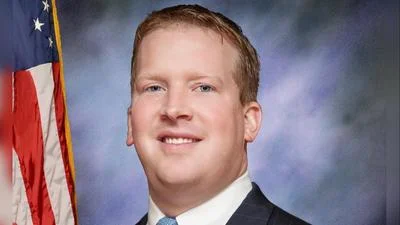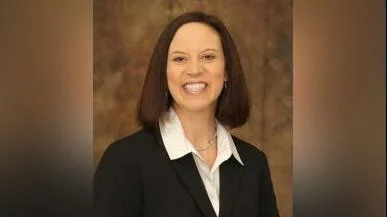First aid is defined as “emergency care or treatment given to an ill or injured person before regular medical aid can be obtained.” It is designed to help people who have become ill or injured outside a traditional healthcare facility.
Just before the fall semester began, about 25 Greenville University coaches, faculty, and residence life employees attended a daylong seminar to learn to provide such care. But their training didn’t deal with broken bones or lacerations; instead, those employees learned the basics of providing first aid to those experiencing a mental health crisis.
“Mental health challenges are growing significantly among college students, and we want to have our front-line employees trained to assist them in crisis situations,” Ross Baker, GU dean of students, said of the Mental Health First Aid seminar, which was developed by the National Council for Behavioral Health. “We want to care for students holistically – physically, mentally, educationally, and emotionally.”
Baker said that although the prevalence of mental health issues increased dramatically during the COVID-19 pandemic, symptoms were apparent before that.
His observations echo trends seen across the nation. Statistics compiled by the American Academy of Pediatrics show that in 2019, 13% of adolescents reported having a major depressive episode (a 60% increase from a decade earlier), and teen suicide rates also are up 60% in the past decade. In 2019, academy officials said that mental health disorders had surpassed physical conditions as the primary source of impairment among adolescents.
“I liken mental health first aid to responding to a physical emergency,” Baker continued. “Our role is to connect the person to first responders – not to diagnose an illness or provide therapy. Instead, this training gave us techniques to help the individual until they can be seen by the professionals.
“By providing this type of front-line training to our employees, we are better able to point people in the right direction when they’re in a crisis. We now have a common language and a prescribed response when those situations come up.”
Robbie Schomaker, GU’s head football coach, brought five of his assistant coaches to the training so they’d be better able to identify and help athletes who are dealing with mental health issues.
“We’re seeing more and more guys struggling with anxiety and depression,” Schomaker said. “Often, they don’t know what to do when they’re feeling overwhelmed. They know something is wrong, but don’t always know what to do about it. We wanted to equip our staff to better deal with situations that might come up.”
He noted that the training was particularly helpful for coaches.
“From a practical standpoint, we spend more time with the student athletes than anyone else,” Schomaker said. “In season, we see them several times a day, six days a week. Because of that, we get a different level of trust; they feel free to share with us when they’re struggling.
“This training gave us more tools in our toolbox. We now know the questions to ask and the language to use to determine how they’re doing. It gives us more ways to help them.”
In addition to the 25 people now trained in mental health first aid, students have several professional counselors available in the community. The University has agreements with three area mental health providers:
• Carrie Ackerman, a licensed clinical social worker. Phone: 618-892-9680. Email: carrie.ackerman@greenville.edu.
• Jubilee House, located at 417 W. College Ave., offers counseling with a spiritual perspective. Hours: 9 am to noon, Monday through Wednesday. Phone: 618-664-2360.
• Prairie Counseling Center, located in the Bond County Health Department (1520 S. Fourth St.), provides mental health and substance abuse services. Hours: 8:30 am to 4:30 pm Monday through Friday. Phone: 618-664-1442.
Original source can be found here.





 Alerts Sign-up
Alerts Sign-up